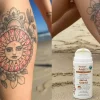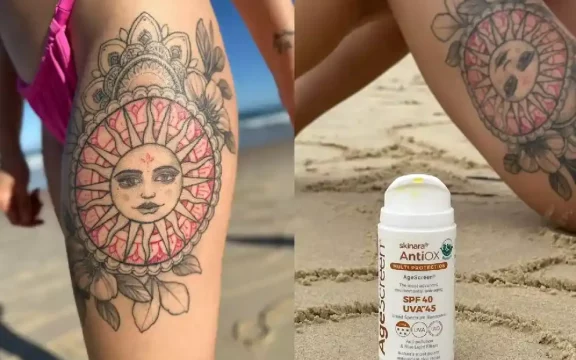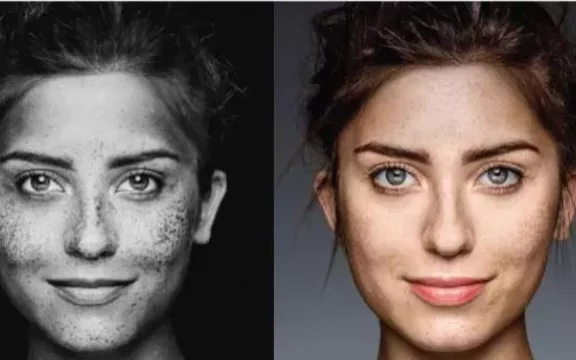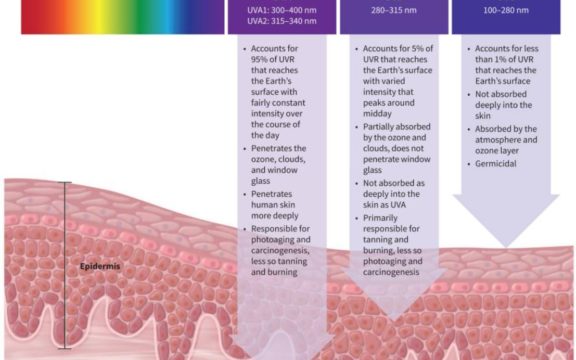What’s the difference between using sunscreen with antioxidants and one without?
A sunscreen with antioxidants provides sun protection plus the benefits antioxidants bring to your skin. This combination provides enhanced skin protection and repair against UV radiation and free radical damage caused by the sun and other environmental factors, including pollution.
What are free radicals?
When exposed to UV radiation, the skin can generate free radicals, including Reactive Oxygen Species (ROS) like superoxide, hydroxyl radicals, and hydrogen peroxide. These free radicals can cause oxidative stress, leading to cellular damage, skin inflammation, and collagen degradation. These issues can then contribute to premature skin aging, hyperpigmentation, and even skin cancer.
Regular sunscreens without antioxidants may only protect the skin from 3-50% of free radicals.
You may be surprised to learn that sunscreens containing nano Zinc Oxide have been proven through research to stimulate ROS production and, therefore, increase oxidative stress.
What are antioxidants?
Antioxidants neutralize free radicals and unstable molecules that otherwise cause cell damage and contribute to premature aging and skin diseases.
Antioxidants applied topically or ingested via wholefoods and supplements help repair & prevent skin damage by increasing skin cells’ defenses against free radicals.
So, here are the main reasons why it makes sense to choose a sunscreen with antioxidants:-
Enhanced protection: Antioxidants help to neutralize free radicals, which are unstable molecules generated by exposure to UV radiation, pollution, and other environmental factors. These free radicals can damage skin cells, leading to signs of aging, inflammation, and other skin issues. Help protect your skin from UV radiation and free radical damage by including antioxidants in sunscreen.
Anti-aging benefits: Antioxidants such as vitamins C and E can help promote collagen production, keeping the skin firm and youthful. They can also reduce the appearance of fine lines, wrinkles, and age spots. Sunscreen without antioxidants will not offer these additional anti-aging benefits.
Vitamin E (Tocopherol): Vitamin E is a potent antioxidant that’s shown to help protect the skin from environmental damage, reducing the signs of aging and calming inflammation.
Vitamin C (Ascorbic Acid): Vitamin C is another powerful antioxidant. It helps to brighten the skin, promotes collagen production, and helps reduces the appearance of fine lines and wrinkles.
Skin brightening: Some antioxidants, like vitamin C, can help brighten the skin and even improve skin tone. This benefit is not present in sunscreens that do not contain antioxidants.
Anti-inflammatory properties: Antioxidants like green tea extract and resveratrol can reduce inflammation and redness in the skin, promoting a more even complexion.
Green Tea (Camellia Sinensis): Green tea extract contains potent antioxidants called catechins, which help protect the skin from UV damage and reduce inflammation.
Resveratrol: is a potent antioxidant found in grapes. Research shows it helps protect the skin from free radical damage and promotes collagen production.
While sunscreen with antioxidants provides all these anti-inflammatory effects, one without may not.
Sunscreen basics
There are two types of sunscreen: ones that absorb and reflect the sun’s ultraviolet (UV) radiation. Both help prevent UV rays from penetrating the skin. And two main types of UV radiation affect your skin: UVA and UVB rays.
Good sunscreen is essential in helping prevent severe effects on your skin of UV radiation from the sun, such as sunburn, skin allergies, premature skin aging, skin DNA damage, and increased risk of skin cancer.
Nothing is more critical for youthful, glowing skin that’s even in tone and without hyperpigmentation than a high UVA-PF factor sunscreen with antioxidants. Let’s quickly summarize the best sunscreen; please read the post Your guide to the best sunscreen for the face
Surprising facts about the sun’s UVA rays
When discussing the best sunscreen, it’s impossible not to mention UVA.
UVB rays primarily cause sunburn, whereas UVA rays contribute to premature skin aging much more than UVB, as they reach far deeper into the skin’s layers.
Therefore to ensure you have the best sunscreen, you need high protection against UVA and UVB rays in at least the same ratio, 1:1. You need more than just a broad spectrum sunscreen with an SPF rating of 30 or above, printed on the label. And remember, the European Sunscreen Standard ‘UVA’ in a circle symbol on a product label doesn’t guarantee excellent UVA protection.
At skinara, we are serious about skin health. AgeScreen is a Broad Spectrum sunscreen with ultra-high UVA protection – up to 300% more than the European Standard classification for a ‘Broad Spectrum.’
Know your UVA and UVB (SPF) ratings
Independent testing laboratories accredit AgeScreen® to have Protection Factors of UVA-PF 45 and SPF 40. Because of this, AgeScreen® has achieved the ultimate 5 Star Boots Ultra High UVA protection rating.
Also, remember that sun protection is not limited to sunscreen with antioxidants (or without); wearing sun-protective clothing, staying in the shade, and avoiding peak sun hours can further help prevent sun damage and reduce the signs of aging. Remember always to be SunSmart.
Skinara® AgeScreen® is a multi-beneficial sunscreen with antioxidants. It boasts excellent antioxidants from Australian sun-resistant desert plants, including wild-grown Desert Lime, Flame Tree, and Kangaroo Paw. These plants have developed potent antioxidants over millennia to withstand the extremely harsh ultraviolet rays in hostile desert conditions. We’ve harnessed their protective abilities to safeguard your skin.
We recommend skinara AgeLess 24/7® a natural and organic anti aging antioxidant serum created exclusively to boost your antioxidant skin health, the perfect partner to AgeScreen® Multi Protection Sunscreen with antioxidants-18 powerful anti aging antioxidants, to be precise.
Multi-defense: the Skinara AgeScreen sunscreen uses a supergroup of the world’s best antioxidants with the most extraordinary ability to repair & protect your cells from inside and out. Each plays a different role in helping directly neutralize free radicals to safeguard your skin’s lipids and cells’ external membranes.
AgeScreen sunscreen with AntiOXIDANTS includes Astaxanthin, one of the most powerful antioxidants ever discovered: –
6,000 x more potent than Vitamin C
800 x more potent than Coenzyme Q10
550 x more potent than Green Tea and Vitamin E
75 x more powerful than Alpha Lipoic Acid
40 x more potent than Beta Carotene
17 x more potent than Grape Seed Extract
These antioxidants can reduce skin damage, minimize signs of aging, and maintain overall skin health.
Antioxidants in your daily diet — the bigger picture
A diet high in antioxidants helps your skin protect skin cells from damage and aging and may improve skin texture and vitality. Diets rich in antioxidants from vegetables and fruits have long been shown to be the healthiest. Broccoli, spinach, carrots, and potatoes are all high in antioxidants, and so are artichokes, cabbage, asparagus, avocados, beetroot, radish, lettuce, sweet potatoes, squash, pumpkin, collard greens, and kale. Blueberries are among the best sources of antioxidants in the diet. They are rich in anthocyanins and other antioxidants, low in calories, and high in fiber. One cup of fresh or frozen berries a day should do you right.









You must be logged in to post a comment.